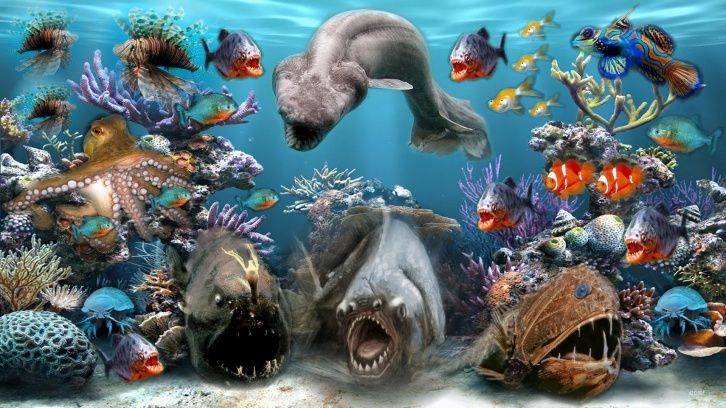
FAQ About Ocean Life

What is the importance of plankton in the ocean?
Plankton plays a crucial role in the health and functioning of marine ecosystems. Here are some key aspects highlighting the importance of plankton in the ocean:
- Primary Producers: Phytoplankton, a type of plankton, are responsible for a significant portion of the Earth's oxygen production through photosynthesis. They convert carbon dioxide and sunlight into organic matter and release oxygen as a byproduct. Phytoplankton form the foundation of the marine food web, providing energy and nutrients to other organisms.
- Food Source: Plankton serves as a vital food source for many marine organisms, ranging from tiny zooplankton to large filter-feeding animals like whales. Zooplankton, which are small animal-like plankton, feed on phytoplankton, while larger organisms in the food chain, such as fish, rely on zooplankton as a primary food source. Planktonic organisms support the entire marine food web and contribute to the productivity and biodiversity of marine ecosystems.
- Carbon Cycling: Plankton plays a crucial role in the global carbon cycle. Phytoplankton absorb carbon dioxide from the atmosphere during photosynthesis and convert it into organic matter. This process, known as carbon fixation, helps regulate the Earth's climate by sequestering carbon from the atmosphere and transferring it to the deep ocean when plankton die and sink. This carbon transport contributes to the long-term storage of carbon and mitigates the effects of greenhouse gas emissions.
- Oxygen Regulation: The photosynthetic activity of plankton, particularly phytoplankton, contributes significantly to the oxygen content in the ocean and the atmosphere. Through photosynthesis, phytoplankton generate oxygen, helping to maintain oxygen-rich conditions necessary for the survival of marine life.
- Indicator of Ecosystem Health: The abundance and composition of planktonic communities can serve as indicators of the health and ecological condition of marine ecosystems. Changes in plankton populations and their distribution can provide insights into the impacts of climate change, pollution, and other environmental stressors on marine ecosystems.
